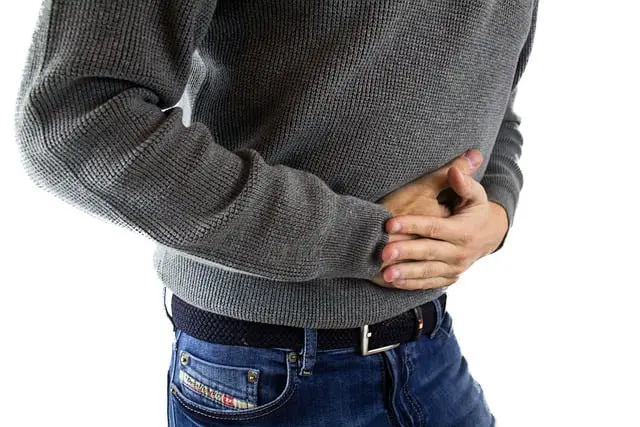Spicy food can cause bloating for some people. Eating spicy food can cause gas, indigestion, and increase the production of stomach acid, leading to bloating. Additionally, some people are more sensitive to spicy foods and may experience bloating more frequently or severely after consuming them.
To minimize the risk of bloating, it’s recommended to consume spicy food in moderation and to drink plenty of water to help flush out the digestive system. But if you do experience bloating and need to deal with it, what can you do to get relief?
While some people immediately turn to tablets or medicine, you can also try a more natural way especially if you don’t have any handy.
How To Deal With A Bloated Stomach From Eating Spicy Foods
Here are some of the quickest home remedies for a bloated stomach after eating spicy food:
If you’re experiencing a bloated stomach after eating spicy food, you can try the following home remedies to find relief relatively quickly:
- Drink Water: Sip on room-temperature water slowly. This can help flush out excess spice and alleviate discomfort.
- Ginger Tea: Ginger has natural anti-inflammatory properties. Brew a cup of ginger tea by steeping fresh ginger slices in hot water for a soothing remedy.
- Peppermint Tea: Peppermint tea can help relax the digestive tract muscles, reducing bloating. Brew a cup of peppermint tea and sip it slowly.
- Fennel Seeds: Chew on a small amount of fennel seeds after your meal. Fennel can help ease digestive discomfort and reduce bloating.
- Yogurt: Plain yogurt with live probiotics can aid digestion. It may help balance your gut flora and reduce stomach discomfort. Read the section below regarding avoiding dairy products however as it can affect people differently.
- Bananas: Bananas are easy on the stomach and can help soothe digestive irritation. They are also rich in potassium.
- Rice: Plain white rice can be calming for your digestive system and can help absorb excess spice.
- Take Short Walks: Gentle physical activity, like a short walk, can aid digestion and alleviate bloating.
- Over-the-Counter Remedies: If the discomfort persists, you may consider over-the-counter remedies like antacids or simethicone-based products, but use them as directed.
Remember, while these home remedies may provide relief for many, it’s essential to listen to your body. If your symptoms are severe, persistent, or accompanied by other concerning symptoms, it’s a good idea to consult with a healthcare professional for proper evaluation and guidance.
Additionally, if you have a known sensitivity to spicy foods, moderating your spice intake in the future can help prevent such discomfort.
Avoid The Following When You Are Bloated
When you’re experiencing bloating from eating spicy foods, it’s a good idea to avoid certain activities, foods, and drinks that can exacerbate your discomfort and worsen the bloating. Here are some things to avoid:
- More Spicy Foods: Avoid consuming additional spicy foods or hot sauces, as they can further irritate your stomach and digestive system.
- Carbonated Drinks: Steer clear of carbonated beverages like soda and sparkling water, as they can introduce more gas into your digestive system, worsening bloating.
- Alcohol: Alcohol can be irritating to the stomach lining and may exacerbate bloating and discomfort. It’s best to avoid alcohol until your symptoms subside.
- Large Meals: Refrain from consuming large or heavy meals, as they can put additional pressure on your stomach and exacerbate bloating. Opt for smaller, more frequent meals.
- Fatty and Greasy Foods: Avoid high-fat and greasy foods, as they can slow down digestion and contribute to bloating. Opt for lighter, more easily digestible options.
- Beans and Legumes: Foods like beans, lentils, and chickpeas are known to cause gas and bloating in some people. Avoid them until your symptoms improve.
- Dairy Products: Dairy can be problematic for some individuals, especially if they are lactose intolerant. Dairy products can contribute to gas and bloating in these cases. Milk can help deal with the spiciness of foods but avoid consuming it when you’re bloated.
- Spicy Snacks: Snacks like spicy chips or snacks containing excessive salt can contribute to water retention and worsen bloating.
- Chewing Gum and Hard Candy: Chewing gum and sucking on hard candy can lead to swallowing air, which can contribute to bloating.
- Strenuous Exercise: Avoid vigorous exercise immediately after eating spicy foods, as it can divert blood flow away from digestion and potentially worsen discomfort.
- Lying Down: Avoid lying down flat after eating. Instead, stay upright or take a leisurely walk to help aid digestion.
- Stress: High-stress levels can affect digestion and exacerbate bloating. Engage in relaxation techniques like deep breathing or meditation to manage stress.
Remember that everyone’s tolerance for spicy foods and susceptibility to bloating can vary. It’s essential to listen to your body and make adjustments based on your individual comfort level. If your symptoms persist or worsen, consider consulting a healthcare professional for further evaluation and guidance.

